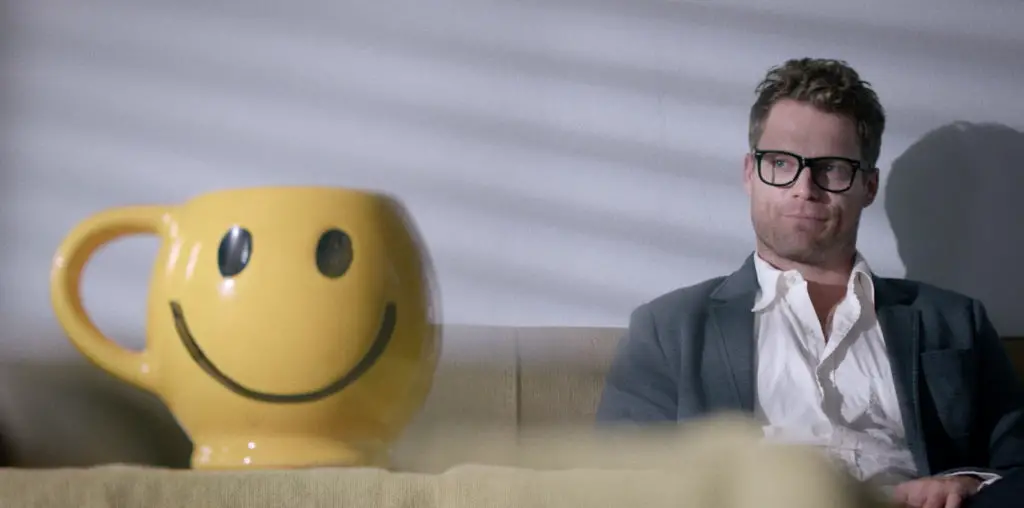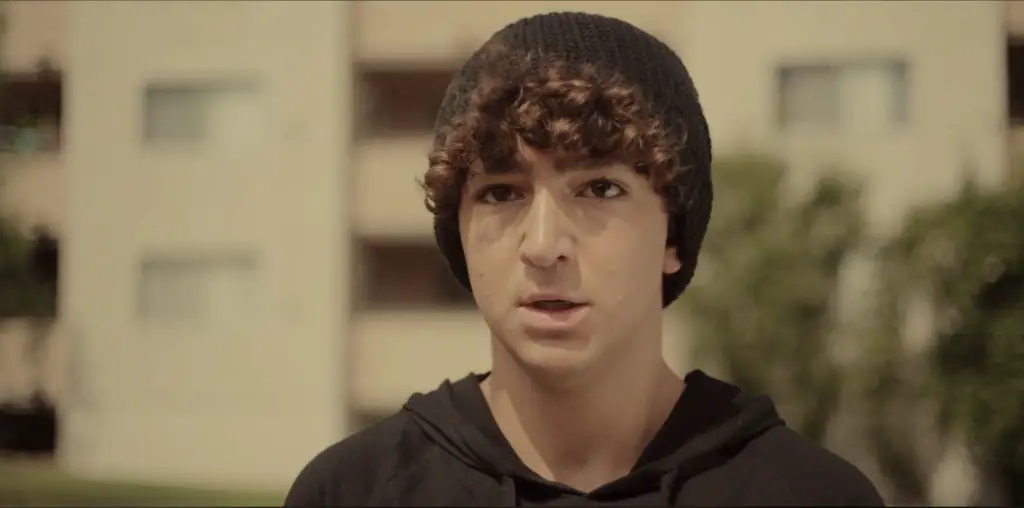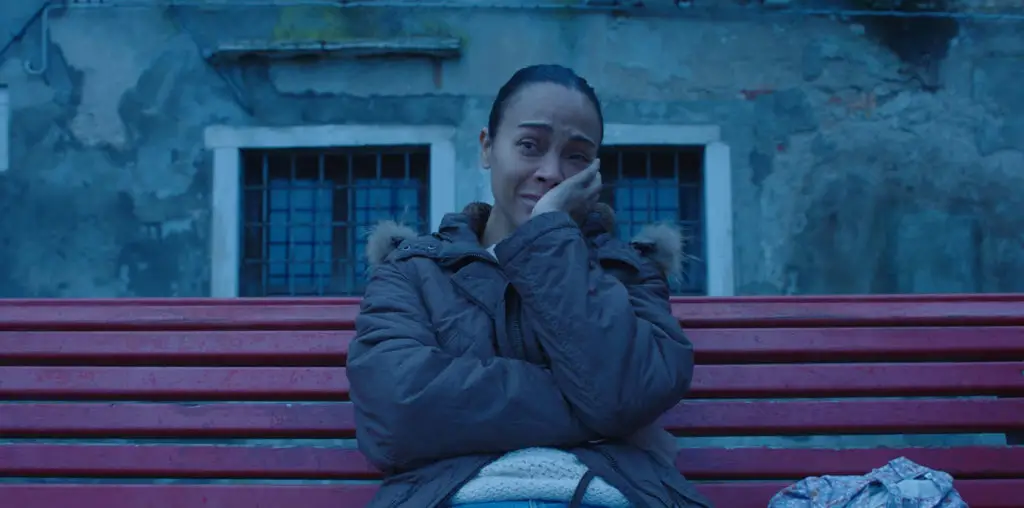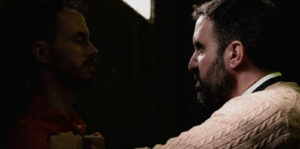
In Ernest Anemone’s short film, The Last Fool, we arrive at the resolution of an incident where a right-wing terrorist shot down several progressive protesters. Kyle (Max MacKenzie) is on death row, and a priest, Jerry (Ernest Anemone), offers him a final chance at redemption.
Sitting at an interrogation room table across from one another, the two begin conversing about good and evil. We find Kyle detached as Jerry claims he no longer loves anything. In turn, Kyle pokes at Jerry’s deceased son’s sexual orientation. Their banter gets even more heated and personal. Things turn when Jerry pulls out a deck of tarot cards and tells Kyle the story of The Last Fool.
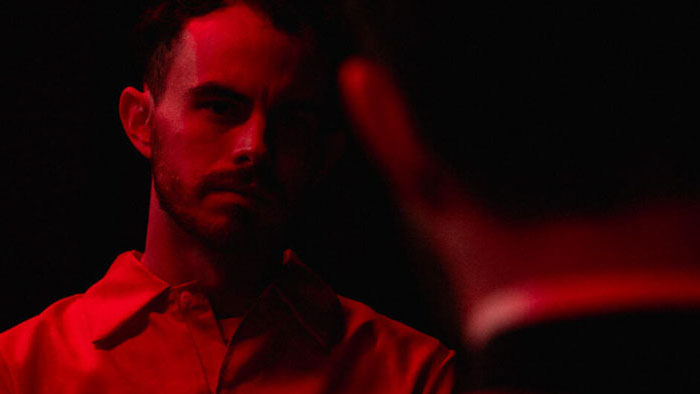
“Kyle is on death row, and a priest…offers him a final chance at redemption.”
The Last Fool is one of those stories where I find myself chewing on its meaning even now. I still have no final conclusion. Writer/director/star Ernest Anemone delivers a commentary on the rise in far-right terrorist attacks over the last decade or so. As Anemone asks the question about the character of Kyle, “We are not born enemies, but once we make them, is there any hope of turning back?”
The Last Fool functions as a political thought experiment. Two characters are on opposite ends of the political spectrum, with one pushing his philosophy to the extreme and the other trying to find answers. Anemone’s discussion is much more than two men sitting at a table—one good and the other not. Anemone uses intriguing and provocative frame composition and chest-beating sound design to keep us off-balance and punctuate points. The Last Fool succeeds in how it uses the art of cinema to do more than tell a story or make a political point.
Let’s face it. We live in a divided time. Though The Last Fool looks at life after tragedy, where I might veer from the film’s point is in its solution. I believe solving the problem requires more honesty about how we got here in the first place.
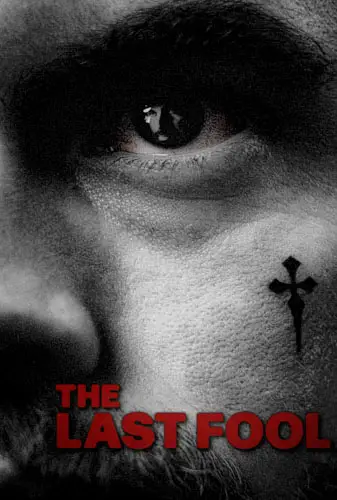
"…functions as a political thought experiment."
